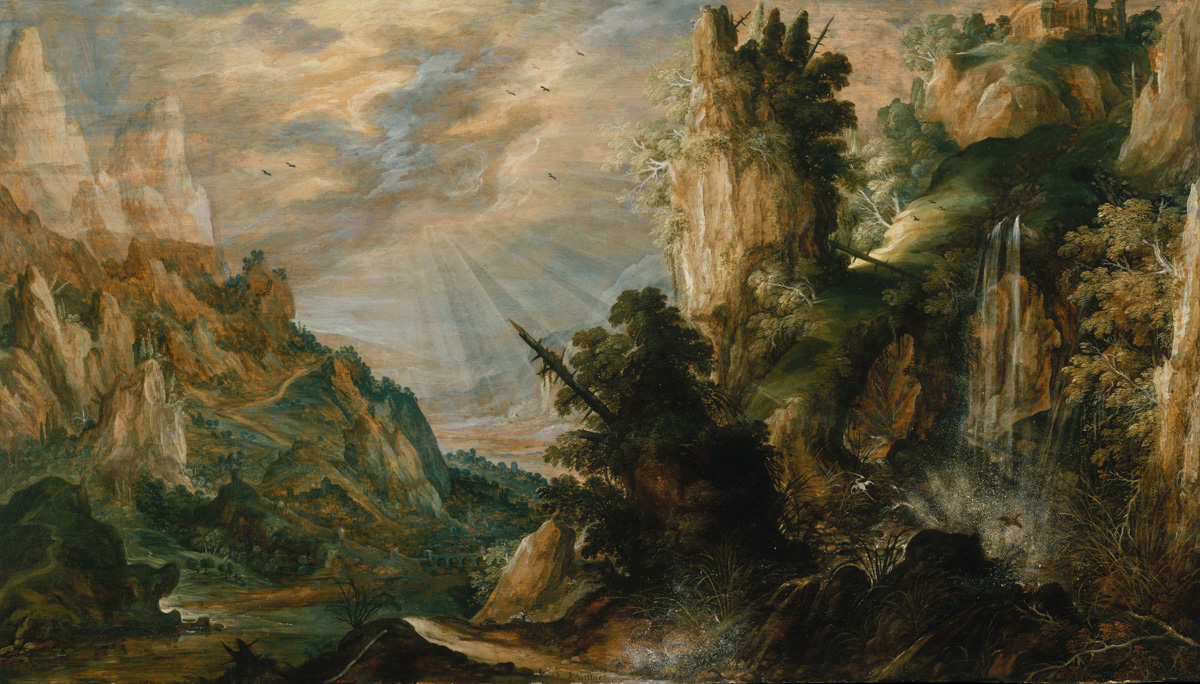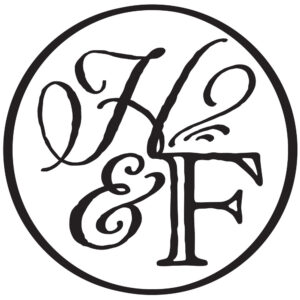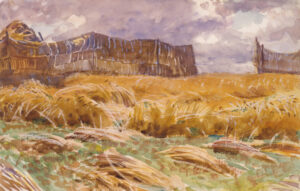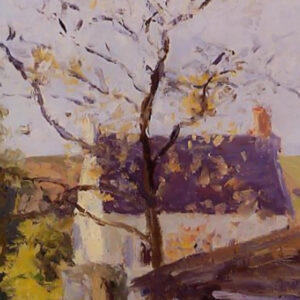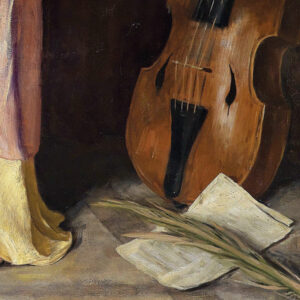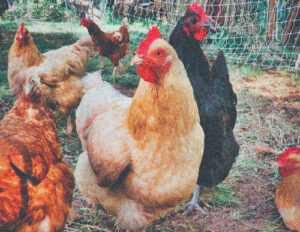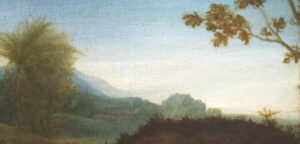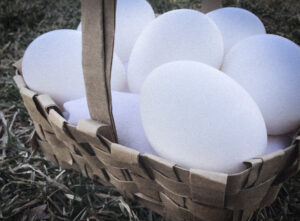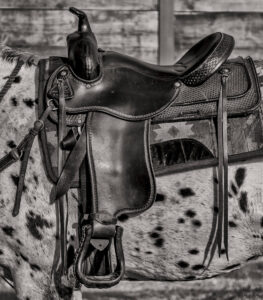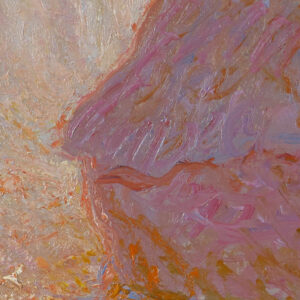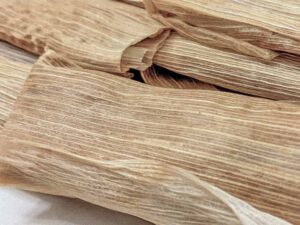—Ink and Echoes—
On Mails

Hilaire Belloc
1906
A “Mail” is a place set with trees in regular order so as to form alleys; sand and gravel are laid on the earth beneath the trees; masonry of great solidity, grey, and exquisitely worked, surrounds the whole except on one side, where strong stone pillars carry heavy chains across the entrance. A “Mail” takes about two hundred years to mature, remains in perfection for about a hundred more, and then, for all I know, begins to go off. But neither the exact moment at which it fails nor the length of its decline is yet fixed, for all “Mails” date from the seventeenth century at earliest, and the time when most were constructed was that of Charles II’s youth and Louis XIV’s maturity–or am I wrong? Were these two men not much of an age?
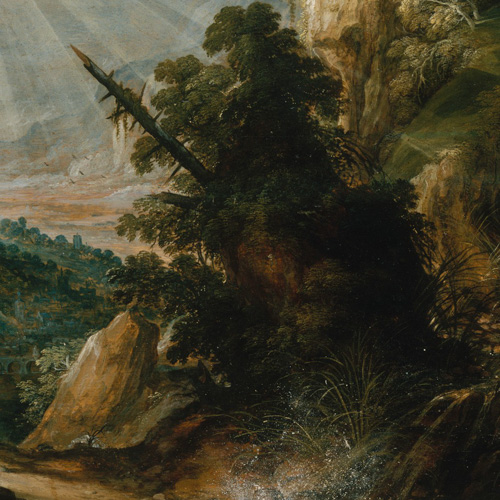 I am far from books; I am up in the Pyrenees. Let me consider dates and reconstruct my formula. I take it that Charles II was more than a boy when Worcester was fought and when he drank that glass of ale at Hotighton, at the “George and Dragon” there, and crept along tinder the Downs to Bramber and so to Shoreham, where he took ship and was free. I take it, therefore, that when he came back in 1660 he must have been in the thirties, more or less, but how far in the thirties I dare not affirm.
I am far from books; I am up in the Pyrenees. Let me consider dates and reconstruct my formula. I take it that Charles II was more than a boy when Worcester was fought and when he drank that glass of ale at Hotighton, at the “George and Dragon” there, and crept along tinder the Downs to Bramber and so to Shoreham, where he took ship and was free. I take it, therefore, that when he came back in 1660 he must have been in the thirties, more or less, but how far in the thirties I dare not affirm.
Now, in 1659, the year before Charles II came back, Mazarin signed the treaty with Spain. At that time Louis XIV must have been quite a young man. Again, he died about thirty years after Charles II, and he was seventy something when he died. I am increasingly certain that Charles II was older than Louis XIV. . . . I affirm it. I feel no hesitation . . . .
Lord! How dependent is mortal man upon books of reference! An editor or a minister of the Crown with books of reference at his elbow will seem more learned than Erasmus himself in the wilds. But let any man who reads this (and I am certain five out of six have books of reference by them as they read), I say, let any man who reads this ask himself whether he would rather be where he is, in London, on this August day (for it is August), or where I am, which is up in Los Altos, the very high Pyrenees, far from every sort of derivative and secondary thing and close to all things primary?
I will describe this place. It is a forest of beech and pine; it grows upon a mountain-side so steep that only here and there is there a ledge on which to camp. Great precipices of limestone diversify the wood and show through the trees, tall and white beyond them. One has to pick one’s way very carefully along the steep from one night’s camp to another, and often one spends whole hours seeking up and down to turn a face of rock one cannot cross.
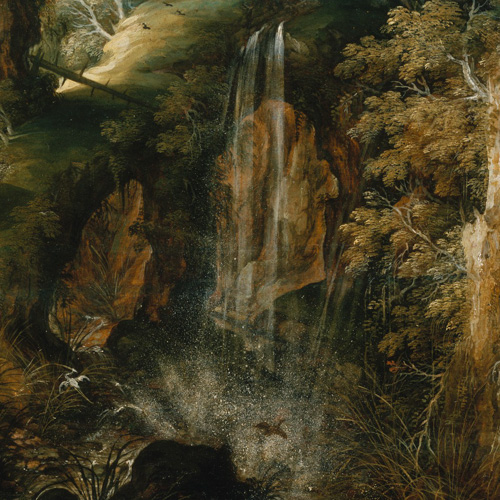 It seems dead silent. There are few birds, and even at dawn one only hears a twittering here and there. Swirls of cloud form and pass beneath one in the gorge and hurry up the opposing face of the ravine; they add to this impression of silence: and the awful height of the pines and the utter remoteness from men in some way enhance it. Yet, though it seems dead silent, it is not really so, and if you were suddenly put here from the midst of London, you would be confused by the noise which we who know the place continually forget — and that is the waterfalls. All the way down the gorge for miles, sawing its cut in sheer surfaces through the rock, crashes a violent stream, and all the valley is full of its thunder. But it is so continuous, so sedulous, that it becomes part of oneself. One does not lose it at night as one falls asleep, nor does one recover it in the morning, when dreams are disturbed by a little stir of life in the undergrowth and one opens one’s eyes to see above one the bronze of the dawn.
It seems dead silent. There are few birds, and even at dawn one only hears a twittering here and there. Swirls of cloud form and pass beneath one in the gorge and hurry up the opposing face of the ravine; they add to this impression of silence: and the awful height of the pines and the utter remoteness from men in some way enhance it. Yet, though it seems dead silent, it is not really so, and if you were suddenly put here from the midst of London, you would be confused by the noise which we who know the place continually forget — and that is the waterfalls. All the way down the gorge for miles, sawing its cut in sheer surfaces through the rock, crashes a violent stream, and all the valley is full of its thunder. But it is so continuous, so sedulous, that it becomes part of oneself. One does not lose it at night as one falls asleep, nor does one recover it in the morning, when dreams are disturbed by a little stir of life in the undergrowth and one opens one’s eyes to see above one the bronze of the dawn.
It possesses one, does this noise of the torrent, and when, after many days in such a wood, I pick my way back by marks I know to a ford, and thence to an old shelter long abandoned, and thence to the faint beginnings of a path, and thence to the high road and so to men; when I come down into the plains I shall miss the torrent and feel ill at ease, hardly knowing what I miss, and I shall recall Los Altos, the high places, and remember nothing but their loneliness and silence. I shall saunter in one of the towns of the plain, St. Girons or another, along the riverside and under the lime trees … which reminds me of “Mails”! Little pen, little fountain pen, little vagulous, blandulous pen, companion and friend, whither have you led me, and why cannot you learn the plodding of your trade?
